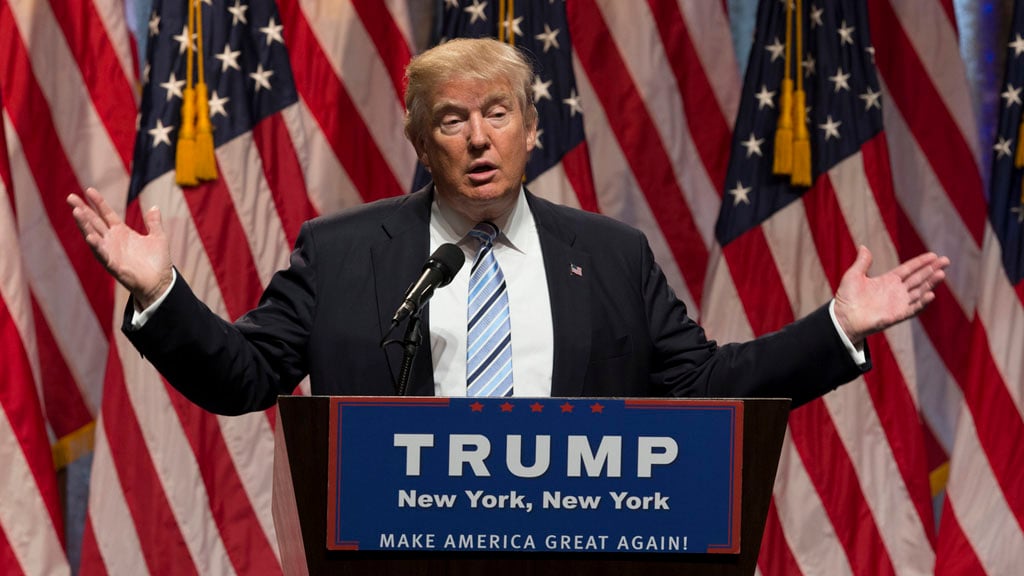The morning after after Donald Trump won the election, the Washington area was in mourning. In DC alone, 92 percent of residents voted for Hillary Clinton, and many people here were experiencing anxiety and fear and stress.
Of course feeling disappointed and having an adverse reaction to your candidate losing isn’t new. After President Obama won in 2008, a Gallup poll showed a drop in happiness among John McCain supporters right after the election. But this year’s election was more divisive, and, according to Gallup, the percentage of people who viewed the tone of the 2016 election as “very negative” more than doubled the number in 2008.
Washingtonians haven’t moved on from the election—there are still many who are troubled by the results, and people are taking their concerns to their therapists. Along with the general anger, depression, anxiety, and fear that many have felt following the election, according to a few local therapists, some Washingtonians are doing more than protesting; the trauma they’ve experienced is causing them to rethink their lives and the reasons that brought them to Washington in the first place.
“I’m not interviewing everyone who comes into our practice, but from water cooler conversation, there’s an uptick in this area because there was a real shock—I’d call it a lowercase trauma—but absolutely there are people who are saying this is traumatic: I can’t work, I can’t function, I’m in a fog,” says Keith Miller, a psychotherapist and director of Keith Miller and Associates Counseling in Bethesda and Dupont. “We were treating panic attacks—in all fairness, these are folks who have a history of it and were in remission, but the trigger is there now and it’s causing their reaction.”
Though not all the psychotherapists contacted for this story said they’d seen more than post-election fear and anxiety, Miller describes the election as a “catalytic event.” Washington experiences a shake up to some extent every four to eight years when the administration turns over—but this election is even more so than years past, as it’s causing people to question fundamental beliefs they had about the world. The administration was going to turn over in January regardless, but locals were ready for a Hillary Clinton presidency, and now, faced with Trump as their president-elect, DC’s government employees especially are questioning whether or not they want to remain in their careers, says Gregory Jones, a psychologist at Capital Center for Psychotherapy and Wellness.
Some of Jones’ clients who are government employees who have worked their way up in their fields are now “seeking support and guidance from people who are more senior in their field to find out whether it’s worth weathering the storm,” he says. After coming to work in DC because they’d been inspired by President Obama, they’re now wondering if their careers are worth holding onto if it means working for four years under a Trump administration.
But it’s not just government employees that are questioning their careers; women and members of the LGBTQ community are also looking at their work environments with fresh eyes, says Hannah Braunstein, a DC psychotherapist. Some who have even completed therapy with her in the past have returned to now reconsider their careers, says Braunstein.
“I’m a trauma specialist. Many people I see have been assaulted or experienced some kind of trauma. With Trump being elected, they’re experiencing a re-traumatization,” says Braunstein. “Particularly, I’m seeing that marginalized groups and the people who have experienced trauma before are re-evaluating the types of environments that they want to exist in.”
Braunstein says she’s seen the fear experienced by women, people of color, and people in the LGBTQ community who are afraid of “the emboldened ‘alt-right’ and the increase in hate crimes.” Though they may not work for the government, they’re considering whether they want to change jobs so that they can be in a more inclusive environments.
The election has also taken a toll on personal relationships, says Miller, who specializes in couple’s counseling. It might not shock you that Miller knows of Washingtonians who have been rethinking their holiday plans so as to avoid sharing a dinner table back home with family members who voted for Trump. But what’s more surprising is that in DC, which was far more unified in its voting than any other state, there’s new strife within couples’ relationships.
“There’s people whose passions run deep for Bernie Sanders versus Hillary, and that old wound is being picked off for couples,” says Miller.
Some couples he says are bickering over the best way to respond—whether with grief, acceptance, or action. Miller also gave the example of a man suggesting that they give Trump a chance, while his female partner was horrified that he wasn’t as upset as she was about the election results. Still others, Miller says, are fighting over votes for Sanders or a third party that were “thrown away,” creating greater opportunity for Trump to win.
Given the wide range of responses and the anxiety-inducing incidents that have followed the election—such as a man with a gun who showed up a local pizza parlor—Miller says his advice to his clients is to “take ownership of what you’re exposing yourself to” and to stop getting their news from Facebook. And while some may react to the impending Trump presidency with a need to take action, Miller says that’s not a response that everyone can emotionally manage, especially when looking at four years of fighting ahead of them.
“Some people are more prone to treating current events as a more broad existential crisis, other people may grieve, and it’s an experience of sadness,” says Miller. “If you were a supporter of Hillary Clinton, the right thing for you to be feeling right now is sadness.”




















